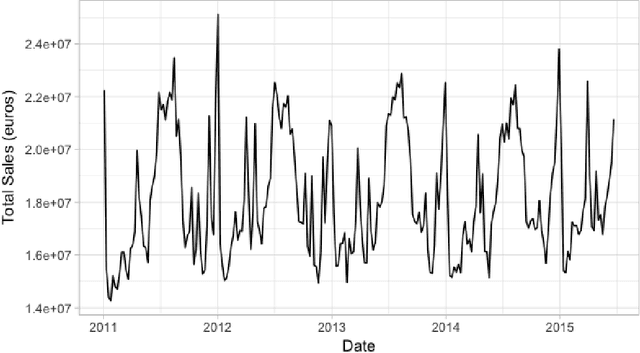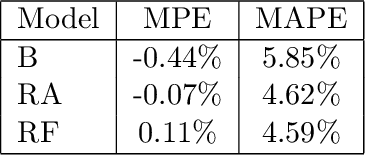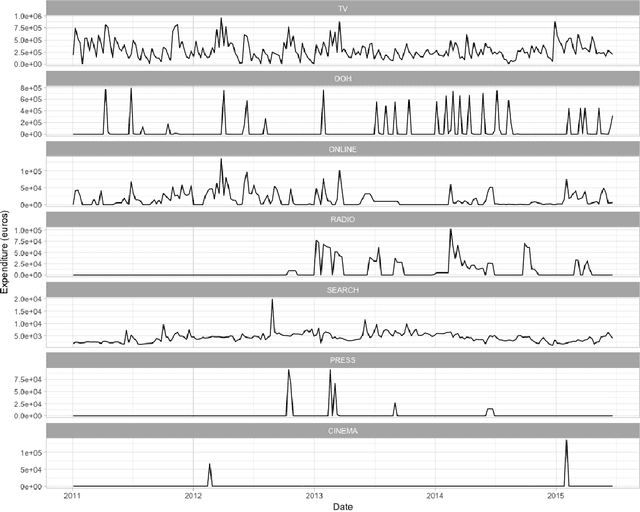Assessing the effect of advertising expenditures upon sales: a Bayesian structural time series model
Paper and Code
Apr 23, 2018



We propose a robust implementation of the Nerlove--Arrow model using a Bayesian structural time series model to explain the relationship between advertising expenditures of a country-wide fast-food franchise network with its weekly sales. Thanks to the flexibility and modularity of the model, it is well suited to generalization to other markets or situations. Its Bayesian nature facilitates incorporating \emph{a priori} information (the manager's views), which can be updated with relevant data. This aspect of the model will be used to present a strategy of budget scheduling across time and channels.
* presented at GDRR'17
 Add to Chrome
Add to Chrome Add to Firefox
Add to Firefox Add to Edge
Add to Edge